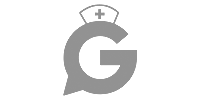The NCLEX Trick: What It Is and Should You Trust It?
The NCLEX exam is a crucial step for aspiring nurses to obtain their nursing license. It is a comprehensive and challenging test that assesses the knowledge and skills necessary to practice safely and effectively as an entry-level nurse.
As the exam approaches, many test-takers search for tips and strategies to reduce anxiety and predict outcomes. One of the most talked-about strategies in the nursing community is the NCLEX “trick.”
Let’s dive into what the NCLEX trick is, how it works, and whether you should trust it.
✔️ Beyond the so-called Pearson Vue trick, there are other NCLEX tricks you should know to boost confidence and efficiency on exam day.
💡 What Is the NCLEX Trick?
The NCLEX trick is an unofficial method that some test-takers use to try and determine whether they passed or failed before receiving their official results.
It involves logging into the Pearson VUE website (the official NCLEX registration portal) and attempting to register for the exam again shortly after finishing it.
The theory is that the system’s response can give you a hint about your performance.
🧪 How the NCLEX Trick Works (Step-by-Step)
1. Complete the NCLEX Exam
After completing your NCLEX (whether RN or PN), you’re left in limbo, waiting for your results.
- The exam uses Computer Adaptive Testing (CAT) to adjust difficulty based on your answers.
- Most students receive between 75 and 145 questions (as of the Next Gen NCLEX).
- Testing time can last up to 5–6 hours depending on the version.
🥇Voted #1 Nursing Study Tool.
Personalized AI Tutor + Instant Answers to All Your Questions. 100% Money Back Guarantee!
2. Wait 24–48 Hours
While official results take about 48 hours, some states participate in the Quick Results Service (available via Pearson VUE for a small fee).
Many students get anxious during this waiting period—and that’s when they try the trick.
3. Attempt the Trick on Pearson VUE
Here’s how it works:
- Log in to your Pearson VUE account
- Try to register for the NCLEX exam again
- Enter your personal info and proceed through the steps
- When you reach the payment page, observe what happens:
➕ If You’re Able to Enter Payment Info
This is often called the “bad pop-up.”
Many interpret it as meaning you did not pass, since the system is allowing you to schedule again.
❌ If You See a Message Like:
“Our records indicate you have recently scheduled this exam. Another registration cannot be made at this time.”
That’s the “good pop-up,” and many interpret it as a pass.
🧠 Does the NCLEX Trick Really Work?
The Answer: It Sometimes Works—but it’s not guaranteed.
Nursing forums, Reddit threads, and Facebook groups are filled with anecdotes from students who say the trick accurately predicted their results.
However, there are just as many false positives and false negatives—cases where the trick showed a pass, but the student failed, or vice versa.
🛑 The NCLEX trick is not officially endorsed by the NCSBN or Pearson VUE.
What Affects the Accuracy?
- Timing: Doing the trick too early (within a few hours) may yield unreliable results. Wait at least 24 hours.
- System errors: Sometimes Pearson VUE undergoes maintenance or glitches.
- Testing state policies: Some state boards may handle result processing differently.
⚠️ Risks of Relying on the NCLEX Trick
- False reassurance or panic: The emotional rollercoaster isn't worth it.
- Misinformation: Online guides are often outdated or inconsistent.
- Unnecessary stress: You’ve just taken a massive exam—give yourself space to rest.
📘 How to Actually Prepare for NCLEX Success
Instead of relying on tricks, focus on:
- Thorough content review (pharmacology, fundamentals, safety, etc.)
- Next Gen NCLEX case studies and clinical judgment practice
- Daily practice questions (1,000+ recommended)
- AI tutors or platforms that provide rationale-based feedback
Explore:
👉 NCLEX Study Tips That Actually Work (2025)
👉 Different Types of NCLEX Questions
❓ FAQ: NCLEX Trick Questions
Does the NCLEX trick work in 2025?
It still circulates, but it remains unreliable and unofficial.
Is the “good pop-up” always a pass?
No. While many say it’s accurate, false positives and negatives happen.
Should I try it?
Only if you’re prepared for either outcome—and can keep a level head about the results.
✅ Final Takeaway
The NCLEX trick is a popular but unofficial method to guess your exam results before they’re released. While many nursing students use it to ease anxiety, its accuracy is not guaranteed and it shouldn't replace official score reporting.
🎯 Focus on what you can control: your study habits, your mindset, and your plan moving forward—no matter the outcome.
Official results from the NCSBN are the only source you should trust. Until then, give yourself some grace—you’ve earned it.
📘 Looking for trusted NCLEX prep tools and guides?
Visit GoodNurse.com for vocab lists, question banks, mnemonics, and more.







